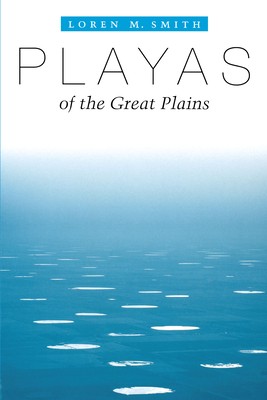
- We will send in 10–14 business days.
- Author: Loren M Smith
- Publisher: University of Texas Press
- ISBN-10: 0292701772
- ISBN-13: 9780292701779
- Format: 15.1 x 22.9 x 1.7 cm, minkšti viršeliai
- Language: English
- SAVE -10% with code: EXTRA
Reviews
Description
Winner, Wildlife Publications Award -- Outstanding Book Category, The Wildlife Society, 2004
Texas Tech University President's Book Award, 2005
Shallow wetlands that occur primarily in semi-arid to arid environments, playas are keystone ecosystems in the western Great Plains of North America. Providing irreplaceable habitat for native plants and animals, including migratory birds, they are essential for the maintenance of biotic diversity throughout the region. Playas also serve to recharge the aquifer that supplies much of the water for the Plains states. At the same time, however, large-scale habitat changes have endangered playas across the Great Plains, making urgent the need to understand their ecology and implement effective conservation measures.
This book provides a state-of-the-art survey of all that is currently known about Great Plains playa ecology and conservation. Loren Smith synthesizes his own extensive research with other published studies to define playas and characterize their origin, development, flora, fauna, structure, function, and diversity. He also thoroughly explores the human relationship with playas from prehistoric times, when they served as campsites for the Clovis peoples, to today's threats to playa ecosystems from agricultural activities and global climate change. A blueprint for government agencies, private conservation groups, and concerned citizens to save these unique prairie ecosystems concludes this landmark study.
EXTRA 10 % discount with code: EXTRA
The promotion ends in 23d.14:13:55
The discount code is valid when purchasing from 10 €. Discounts do not stack.
- Author: Loren M Smith
- Publisher: University of Texas Press
- ISBN-10: 0292701772
- ISBN-13: 9780292701779
- Format: 15.1 x 22.9 x 1.7 cm, minkšti viršeliai
- Language: English English
Winner, Wildlife Publications Award -- Outstanding Book Category, The Wildlife Society, 2004
Texas Tech University President's Book Award, 2005
Shallow wetlands that occur primarily in semi-arid to arid environments, playas are keystone ecosystems in the western Great Plains of North America. Providing irreplaceable habitat for native plants and animals, including migratory birds, they are essential for the maintenance of biotic diversity throughout the region. Playas also serve to recharge the aquifer that supplies much of the water for the Plains states. At the same time, however, large-scale habitat changes have endangered playas across the Great Plains, making urgent the need to understand their ecology and implement effective conservation measures.
This book provides a state-of-the-art survey of all that is currently known about Great Plains playa ecology and conservation. Loren Smith synthesizes his own extensive research with other published studies to define playas and characterize their origin, development, flora, fauna, structure, function, and diversity. He also thoroughly explores the human relationship with playas from prehistoric times, when they served as campsites for the Clovis peoples, to today's threats to playa ecosystems from agricultural activities and global climate change. A blueprint for government agencies, private conservation groups, and concerned citizens to save these unique prairie ecosystems concludes this landmark study.


Reviews